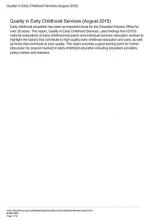Overseas Trained Teachers: Adjusting to living and working in New Zealand
This report serves to shine some light on the experiences of teachers who have come from overseas to teach in New Zealand. It is based on data collected from a voluntary survey of teachers and principals of the school where they are employed.

